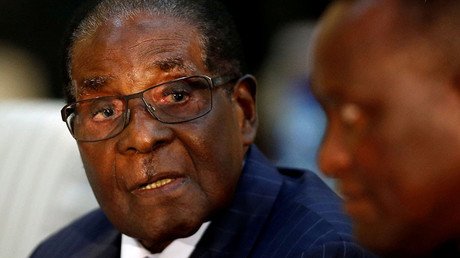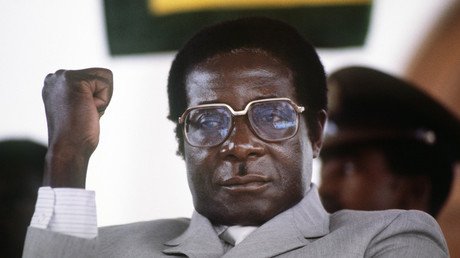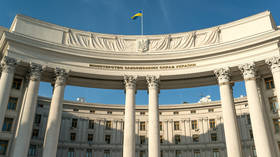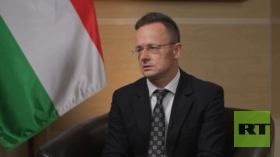Prime Zimbabwe investor China denies involvement in military coup
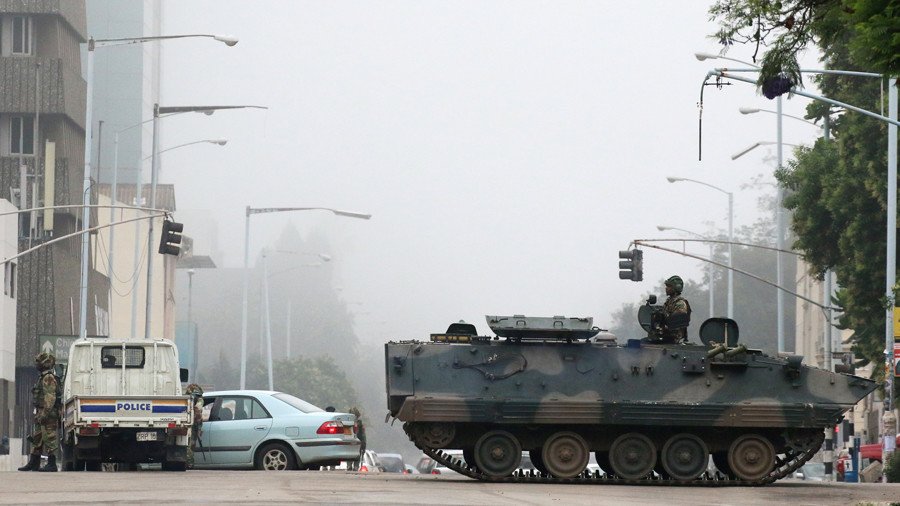
China, which has invested heavily in Zimbabwe in recent years, has denied involvement in the military coup in the country after Zimbabwean General Constantino Chiwenga, the man behind the ongoing takeover, visited Beijing last week.
Zimbabwe’s military deployed troops armed with heavy weapons to patrol the streets of the capital, Harare, and took control of the state broadcaster overnight. In a televised address, Major General SB Moyo, chief of staff logistics, said the intervention was “targeting criminals around” Robert Mugabe, Zimbabwe’s leader since 1980, the year the country became independent. Mugabe’s whereabouts were not immediately disclosed, but the military stated that the 93-year-old strongman was “safe and sound.” Mugabe later told South African President Jacob Zuma over the phone that he was confined to his home.
The coup apparently did not lead to clashes in the streets, although Reuters said witnesses reported several explosions. The military said life in the capital will soon return to normal.
The takeover comes amid a power struggle between Emmerson Mnangagwa, 75, a long-time right-hand man for Mugabe and veteran of the war for independence, and the president’s 52-year-old wife Grace. Mnangagwa was presumed to be the chosen successor for Mugabe until just a few months ago. Last week, however, he was ousted from the office of vice president, leaving Grace Mugabe as the presumed heir.
On Monday, General Constantino Chiwenga, commander of the Zimbabwe Defense Forces, threatened to “step in” to stop a purge of Mnangagwa supporters in the police and army, orchestrated by a faction in the ruling ZANU-PF party led by Grace Mugabe. ZANU-PF officials accused the general of “treasonable conduct” and the coup followed shortly afterwards.
Chinese connection?
After his dismissal, Mnangagwa may have traveled to China. According to a report by New Zimbabwe.com, the ousted official was spirited away with the help of fellow war veteran and former ambassador to Beijing, Chris Mutsvangwa. Mutsvangwa, the chairman of the War Veterans Association of Zimbabwe, would not confirm the report, but has vocally criticized Mnangagwa’s expulsion.
Mnangagwa, along with a number of other members of the Zimbabwe African National Liberation Army, received military training in China in the 1960s and is believed to have ties to serving generals in the People’s Liberation Army.
The speculation on China’s involvement in the events in Zimbabwe is further fueled by the visit of General Chiwenga to Beijing last week. Chiwenga met Chinese Defense Minister Chang Wanquan in Beijing on Friday, according to photos of the meeting released by China. On Wednesday, China’s Foreign Ministry said the visit was a regular military exchange and had no relation to the coup.
“I can only tell you that his visit to China this time was a normal military exchange mutually agreed upon by China and Zimbabwe,” Geng Shuang, a spokesman for the ministry, told journalists. “As a country that is friendly with Zimbabwe, we are paying close attention to developments of the situation in Zimbabwe.”
China has a strong interest in Zimbabwe, a country rich in mineral resources but suffering from decades of sluggish economic development blamed by many observers on Robert Mugabe’s policies. Over the past couple of years, China has brought about $30 million per month into Zimbabwe, according to Xing Shanshan, vice secretary-general of the Chinese Federation of Zimbabwe.
The spree made China the single largest source of Foreign Direct Investment for the impoverished African nation. The money went into the growth of tobacco, the construction of solar power plants, and other projects. China is also Zimbabwe’s biggest trading partner and had written off a debt worth $40 million as part of a larger African economy stimulus.
Since January, the Chinese yuan has become an official currency in Zimbabwe on a par with the US dollar, the South African rand and the Botswana pula. The country’s own currency is infamously unstable, demonstrating record-high hyperinflation of up to 500 billion percent during the 2009 crisis.
